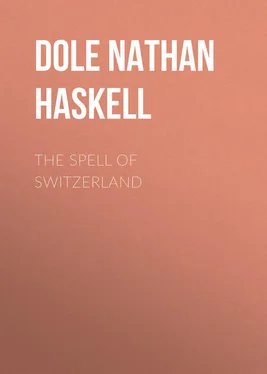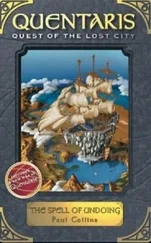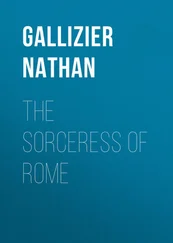Nathan Dole - The Spell of Switzerland
Здесь есть возможность читать онлайн «Nathan Dole - The Spell of Switzerland» — ознакомительный отрывок электронной книги совершенно бесплатно, а после прочтения отрывка купить полную версию. В некоторых случаях можно слушать аудио, скачать через торрент в формате fb2 и присутствует краткое содержание. Жанр: foreign_antique, foreign_prose, на английском языке. Описание произведения, (предисловие) а так же отзывы посетителей доступны на портале библиотеки ЛибКат.
- Название:The Spell of Switzerland
- Автор:
- Жанр:
- Год:неизвестен
- ISBN:нет данных
- Рейтинг книги:5 / 5. Голосов: 1
-
Избранное:Добавить в избранное
- Отзывы:
-
Ваша оценка:
- 100
- 1
- 2
- 3
- 4
- 5
The Spell of Switzerland: краткое содержание, описание и аннотация
Предлагаем к чтению аннотацию, описание, краткое содержание или предисловие (зависит от того, что написал сам автор книги «The Spell of Switzerland»). Если вы не нашли необходимую информацию о книге — напишите в комментариях, мы постараемся отыскать её.
The Spell of Switzerland — читать онлайн ознакомительный отрывок
Ниже представлен текст книги, разбитый по страницам. Система сохранения места последней прочитанной страницы, позволяет с удобством читать онлайн бесплатно книгу «The Spell of Switzerland», без необходимости каждый раз заново искать на чём Вы остановились. Поставьте закладку, и сможете в любой момент перейти на страницу, на которой закончили чтение.
Интервал:
Закладка:
“Has the initiative proved a working success?” I asked.
“Well,” replied Professor Landoldt, “in 1908, more than two hundred and forty-one thousand voters carried the initiative, proposed by almost one hundred and sixty-eight thousand signatures, against the sale of absinthe. In the same way, locally, vivisection was partially prohibited in my Canton in 1895. In Zürich there was a strong feeling in the community that the public service corporations and the large moneyed interests had altogether too much influence in the government; even the justice of the courts was called in question, and, under the leadership of Karl Bürkli, who was a follower of Fourier, the initiative and referendum were adopted especially as a protest against the high-handed autocracy of such men as Alfred Escher. It has been principally used as a weapon against the party in power; but not always successfully. Sometimes it has worked disastrously, as for instance when, in November, the unjust prejudice against the Jews was sufficiently strong to introduce into the Constitution an amendment prohibiting the butchering of cattle according to the old Bible rite. They professed to believe in the Bible, but not in what it says! In this case the societies for the prevention of cruelty to animals combined with the Jew-baiters.”
“A measure which affects me personally,” said M. Criant, taking up the theme, “but which is really in the line of progress, was passed in 1908, when by an overwhelming majority – some three hundred and five thousand against about fifty-six thousand – the Federal Government took over from the individual cantons the right to legislate concerning the water resources when any national interest might be at stake. There are such tremendous hydraulic possibilities in Switzerland that it would be a national misfortune to have them controlled by local or by private corporations.”
“We have the same problem in America,” I remarked. “One of the greatest and most insidious dangers threatening our people is the Water Trust, which is already strongly intrenched behind special privileges and protected by enormous moneyed interests. I believe the people ought to control the natural monopolies.”
“So do I,” exclaimed Professor Landoldt fervently. And he went on: “We have recently stood fast by those principles by taking over the railways, the last item in this tremendous business being the acquisition, a few months ago, of the St. Gothard line which, with its debt, has cost, or will cost, some fifty millions. It took us about seven years to get worked up to the pitch of government ownership. The price seemed extravagant in 1891, and the measure was defeated more than two to one; in 1898 there was a majority of more than two hundred thousand in favour of it; the vote brought out almost the whole voting strength of the country.
“The citizens of Zürich, a few years ago, refused to spend their money in building an art-museum; but thought better of it in 1906. The truth of the matter is, the people like to show their power; they like to discipline their representatives, often at the expense of their own best interests. In 1900 they turned down by a majority of nearly two hundred thousand a Workmen’s Compulsory Insurance bill which both houses had carried with only one opposing vote.
“The interference of the people with the finances of the cantons, or of the cities, often works mischief. How, indeed, could they be expected to show much wisdom in deciding on questions which even an expert would find difficult? They are willing to reduce water-rates, but they object to increase taxes, except on large fortunes. They will readily authorize incurring a good big debt, but they do not like to face the necessity of paying it, or providing for the payment of it. As a people we are a little near-sighted; we are not gifted with imagination.”
“I should think this popular interest in government would tend to educate the masses,” I suggested.
“It certainly does,” replied M. Criant. “Questions are discussed on their merits and though, of course, a tricky orator may mislead, it will not be for long.”
At this point we were interrupted, so that nothing more was said at the time about Swiss politics. Both my friends, however, renewed their invitations for me to be sure to look them up. It is one of the great pleasures and advantages of travelling that one may make delightful acquaintances. I had no intention of letting slip the opportunity of further intercourse with men so genial and well informed as Professor Landoldt and M. Criant.
The voyage came to an end, as do all things earthly. Nothing untoward happened; and we reached Cherbourg on schedule time.
CHAPTER III
A ROUNDABOUT TOUR
RUTHand her husband were waiting for me. Will took charge of my luggage. He sent my trunk by express to Lausanne. He even insisted on paying the duties on my cigars – several boxes of Havanas. I always smoke the best cigars, though, thank the Heavenly Powers, I am not a slave to the habit. I suppose every man says that, if for no other reason than to contradict his wife.
When everything was arranged, we took our places in the handsome French touring-car, which, like a living thing instinct with life, proud of its shiny sides, of its rich upholstery, of its wide, swift tires, of its perfectly adjusted machinery, was to bear us across France.
Emile, in green livery, managed her with the skill of a Bengali mahout in charge of an obedient and well-trained elephant. Emile was a character. Born in French Switzerland, he spoke French, German and Italian with equal fluency, and he had a smattering of English which he invested with a picturesque quality due to transplanted idioms and a variegated accent. Had he worn an upward-curling mustache and a pointed Napoleonic beard, one might have taken him for at least a vicomte. He knew every nook and corner of the twenty-two cantons and he had a sense of locality worthy of a North American Indian.
I could write a book about that trip from Cherbourg to Lausanne. Time meant nothing to us. We could follow any whim, delay anywhere, without serious fillip of conscience. The children were in trustworthy hands; the weather was fine. If there is anything in astrology, the stars may be said to have been propitious. We stopped for a day at the little town of Dol in Bretagne. In honour of some problematic ancestor I had the portal of the cathedral decorating my book-plate, and it was an act which a Chinese mandarin would approve – to pay our respects to the dim shades of Sir Raoul, or Duc Raoul, who is said to have accompanied William the Conqueror to England and to have killed Hereward the Wake in a hand-to-hand contest among the fens. Fortunate little town to have such a cathedral, though why Samson should be its patron saint I do not pretend to understand. His conduct with Delilah was hardly saint-like, as we are accustomed to regard conduct in these days.
We climbed Mont Dol and saw the footprints made by the agile archangel Michael when he crouched to spring over to the rock that bears his name. Generally such marks are attributed to the fallen angel who switches the forked tail. That unpleasant personage must have been in ancient days as diligent in travel as the Wandering Jew. The book of Job contains his confession to the Lord that he was even then in the habit of going to and fro in the earth and walking up and down in it.
We saw Mont Michel, too, and wandered all over its wonderful castle. We did not think it best to make a long sojourn in Paris. No longer is it said that good Americans go there when they die. They had been having rain and the Seine was on a rampage. What a strange idea to build a big city on a marsh! it is certain to be deluged every little while; and house-cleaning must be a terrible nuisance after the muddy waters have swept through the second story floors, even if the foundations do not settle or the house itself go floating down stream. The river was threatening to pour over the quais; the arches of the bridges were almost hidden and men were working like beavers to protect the adjoining streets from inundation.
Читать дальшеИнтервал:
Закладка:
Похожие книги на «The Spell of Switzerland»
Представляем Вашему вниманию похожие книги на «The Spell of Switzerland» списком для выбора. Мы отобрали схожую по названию и смыслу литературу в надежде предоставить читателям больше вариантов отыскать новые, интересные, ещё непрочитанные произведения.
Обсуждение, отзывы о книге «The Spell of Switzerland» и просто собственные мнения читателей. Оставьте ваши комментарии, напишите, что Вы думаете о произведении, его смысле или главных героях. Укажите что конкретно понравилось, а что нет, и почему Вы так считаете.












